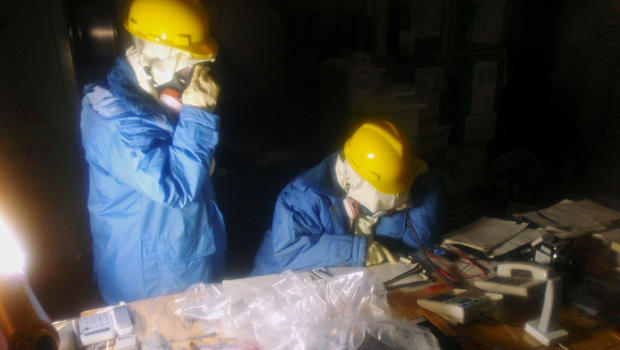Japan reactors' salt buildup might hurt repairs
The short-term fix that Japanese workers used to fend off a meltdown at the nuclear power plant crippled by the earthquake and tsunami that hit the nation nearly two weeks ago has created a new problem that could lead to the release of radioactive material, The New York Times reported Thursday.
Latest developments from Japan
Complete Coverage: Disaster in Japan
After cooling pumps failed at the Fukushima nuclear plant in the natural disaster's aftermath, salt has built up from the gallons of seawater pumped in to cool the plant's reactors, which the Times reports "could cause them to heat up more and, in the worst case, cause the uranium to melt, releasing a range of radioactive material."
The chief of safety research for boiling water reactors at General Electric when the company installed the Fukushima reactors told the Times that about 57,000 pounds of salt built up in reactor No. 1 and that reactors Nos. 2 and 3 have collected 99,000 pounds of salt each.
If the salt has encapsulated the reactors' fuel rods, they would heat up because the water wouldn't be able to cool them down. If the rods become too hot, their coating would rupture, releasing radioactive iodine into the atmosphere.
However, the salt could also be sinking to the bottom of the reactors or flowing back out to sea as new seawater is pumped in. The Japanese are trying to make repairs so freshwater could be again pumped in to cool the fuel rods.
